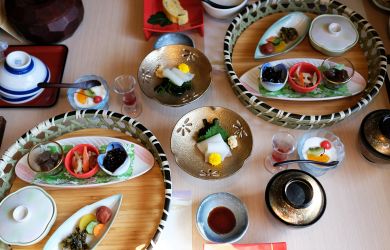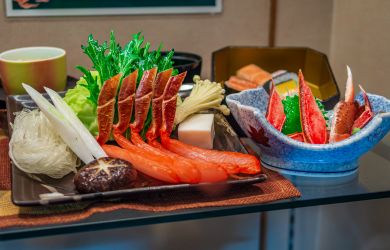
June 21, 2013
The Quality of Mercy
Japan’s drug laws must change to ease pain and suffering
By Metropolis
Originally published on metropolis.co.jp on June 2013

Just before the end of the year the Supreme Court in Japan ruled over the counter (OTC) medicines could be sold online. But last month the panel assigned to study the matter could not agree due to differences over Class 1 medicines that may have “serious” side effects.
Not to belittle the Ministry’s efforts, but websites have been available for years selling OTC and prescription medications to users in Japan—in larger varieties than available locally, and with Japanese language and currency support. So getting it done is the simplest of all things—a defensive market play. But the difficulty agreeing on baseline definitions gives an idea of the currents running below.
There are some obvious trends. An aging population—Japan has experienced the longest and steepest decline in fertility in modern history—requires (and will require) more care. The drain on medical resources is exacerbated by the fact that most prescriptions in Japan are capped at 30 days, necessitating a clinic visit even only to refill a prescription. Solutions are discussed such as letting more students attend medical school, allowing foreign doctors to practice in Japan, and even telemedicine. The first, while desirable, has a very long timeline; the second brings up Japan’s hoary old immigration issues; and the third, while feasible, is not yet here.
In the meantime, people suffer.
Some find a solution by going out of the system. Clinics where I live recently began issuing Tramacet (containing 37.5 mg of Tramadol, a synthetic opioid analgesic, and 325mg of Aceteminophen). Outside Japan, Tramadol is available in 100, 200, 300 and even the time-release 400mg tablets. Few patients may ever need the largest dose (or any of the other analgesics presently not available in Japan), but for those that do—should they not be available? Do police or politicians really believe patients in such dire circumstances would be out on the streets hawking their drugs? Were that so, all the countries where they are sold would have huge abuse problems—yet they do not. In Britain, terminal hospices use Brompton’s Solution, a medicine containing morphine, cocaine, and pure alcohol. This has not created a new class of addicts, but allowed many who are terminally ill to live their last days without agony.
The use of medical marijuana began because of the verifiable benefits to patients with chronic and/or serous conditions (e.g. glaucoma sufferers or those in chemotherapy). Though it does not get much press, MDMA (Ecstasy) and LSD are both the subject of supervised medical experiments in the US. MDMA has been shown to have an effect in certain serious depressive conditions and Post Traumatic Stress Disorder, and LSD for other conditions. Ironically, before each substance was made illegal in the U.S., possible therapeutic benefits were overlooked for political considerations.
What is choking change in Japan is a perfect storm of laws—some dating from the Occupation years—and their consequences: doctors untrained in the most effective palliative therapies, and a pharmaceutical industry that has wielded too much power (as in many other places) over national healthcare issues.
The government has taken steps in recent years to promote medical tourism to Japan. But to whom do they plan to appeal? Medical tourists go to other countries for reasons of price, quality of care, and medication availability. They do not travel to eat in Michelin-starred restaurants, despite the admirable numbers of those in Tokyo.
The situation as it exists now, a hodgepodge of patchwork regulations and selected enforcement is untenable. In 2010 the percentage of the population over 65 was already 23.1 percent, and those who will care for the aging population makes it untenable. The bell tolls for every human on these islands who will be touched, in one way or another, because of parents, siblings, partners, other family or friends.
“Gambaru,” may be appropriate for athletics and business but it becomes something completely different when applied to pain and suffering. What is missing here is something simpler and more fundamental: mercy. And the best lines about mercy were written long ago by the Bard. “The quality of mercy is not strained. It droppeth as the gentle rain from heaven, upon the place beneath.”
The rainy season is underway.





